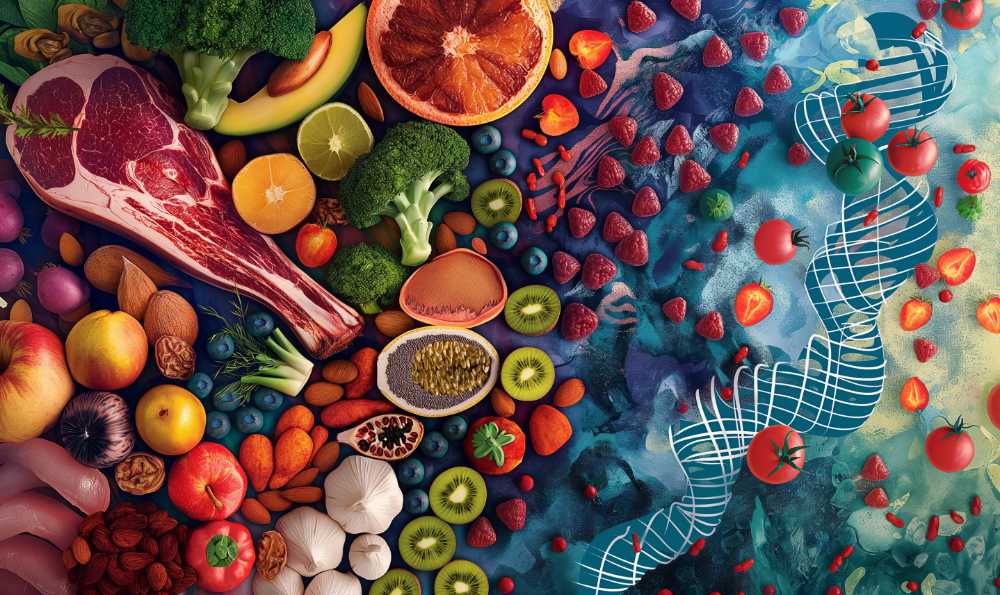The Rise of Organic and Natural Foods: Nourishing Our Bodies and Planet

Understanding Organic and Natural Foods
In recent years, there has been a significant shift towards the consumption of organic and natural foods, driven by concerns about health, sustainability, and environmental impact. As consumers become more conscious of what they eat, they are increasingly seeking foods that are produced using methods that prioritize health, ethical farming practices, and ecological responsibility.
What Are Organic Foods?
Organic foods are cultivated and produced without the use of synthetic pesticides, fertilizers, genetically modified organisms (GMOs), or antibiotics. Instead, organic farming emphasizes natural agricultural techniques, including:
- Crop rotation to maintain soil fertility and reduce pests naturally.
- Composting to enrich soil health and reduce waste.
- Biological pest control instead of chemical pesticides.
Organic farming is regulated by strict certification standards set by organizations such as the USDA Organic Certification in the United States and the EU Organic Regulation in Europe (USDA, “National Organic Program Standards”, 2023).
What Are Natural Foods?
Natural foods, while not as strictly regulated as organic foods, are typically characterized by being minimally processed and free from artificial additives, preservatives, and synthetic ingredients. The term “natural” lacks a universal regulatory definition, but many consumers associate it with clean-label products, transparency, and whole, unprocessed ingredients (European Food Safety Authority, “Natural Food Labeling Guidelines”, 2023).
The Benefits of Organic and Natural Foods
Choosing organic and natural foods offers numerous advantages, benefiting both individuals and the environment:
Nutritional Benefits
Studies suggest that organic and natural foods often contain higher levels of essential nutrients and antioxidants than their conventionally grown counterparts. A meta-analysis published in the British Journal of Nutrition (2023) found that organic produce had significantly higher concentrations of vitamin C, iron, and polyphenols, which contribute to overall health and disease prevention (British Journal of Nutrition, “Organic Food and Nutrient Density”, 2023).
Health Benefits
- Organic foods do not contain synthetic pesticides, herbicides, or artificial preservatives, reducing exposure to potentially harmful chemicals (World Health Organization, “Pesticide Residues in Food”, 2023).
- They are free from antibiotics and synthetic growth hormones, which are commonly used in conventional animal farming and have been linked to antibiotic resistance and hormonal imbalances (European Medicines Agency, “Use of Antibiotics in Livestock Farming”, 2023).
Environmental and Sustainability Benefits
Organic farming methods reduce pollution, conserve water, and use less energy than industrial agricultural practices. According to a study by the Food and Agriculture Organization (FAO), organic farming can increase soil fertility and biodiversity, making it a more sustainable long-term solution (FAO, “Sustainable Farming Practices”, 2023).
Challenges and Considerations
While the benefits of organic and natural foods are clear, there are several challenges and considerations that consumers should keep in mind:
Higher Costs
Organic and natural foods are often more expensive than conventionally grown alternatives due to:
- Stricter farming regulations and certification costs.
- Labor-intensive production methods that do not rely on chemical shortcuts.
- Lower crop yields compared to conventional farming (US Department of Agriculture, “Organic vs. Conventional Farming Costs”, 2023).
However, some argue that the long-term health benefits and reduced environmental damage justify the higher costs.
Accessibility Issues
Despite growing demand, organic and natural foods are less accessible in certain regions due to:
- Limited supply in supermarkets, especially in lower-income communities.
- A lack of government subsidies for organic farming compared to industrial agriculture (European Commission, “Agricultural Subsidies in the EU”, 2023).
Misleading Labeling
Not all products labeled as “natural” are genuinely healthier or more sustainable. Some brands use greenwashing tactics to mislead consumers into believing their products are healthier than they actually are (Consumer Reports, “Misleading Food Labels”, 2023). This highlights the need for greater transparency and stronger regulations in the food industry.
How to Incorporate Organic and Natural Foods Into Your Diet
Transitioning to an organic and natural diet does not have to be overwhelming. Here are practical tips for making the switch:
Start Small
- Replace a few key conventional products (e.g., fruits, vegetables, dairy, and meat) with organic alternatives each week.
- Prioritize organic versions of the “Dirty Dozen”, which are foods with the highest pesticide residues (Environmental Working Group, “2023 Dirty Dozen List”, 2023).
Shop Smart
- Look for certified organic labels, such as USDA Organic, EU Organic, or Soil Association certification.
- Buy seasonal and locally produced organic foods to support sustainable farming and reduce transportation emissions.
- Visit farmers’ markets or participate in community-supported agriculture (CSA) programs for fresher and more affordable organic options (National Farmers Market Coalition, “The Growth of Local Food Systems”, 2023).
Reduce Processed Foods
Even organic products can be highly processed. Prioritize whole foods such as fresh fruits, vegetables, whole grains, and lean proteins over packaged organic snacks and processed meals (Harvard School of Public Health, “Whole Foods vs. Processed Foods”, 2023).
Conclusion
The increasing interest in organic and natural foods reflects a growing awareness of the connections between diet, health, and the environment. By choosing foods that are produced with sustainability, ethical farming, and personal health in mind, consumers can contribute to a healthier planet while nourishing their bodies.
Despite challenges such as higher costs, accessibility issues, and misleading labeling, the shift towards organic and natural foods remains an important step in improving food quality and promoting responsible agricultural practices. Governments and policymakers should support organic farming through better subsidies and stricter regulations to ensure a fair and sustainable food system for future generations.
References
- British Journal of Nutrition, “Organic Food and Nutrient Density”, 2023
- Consumer Reports, “Misleading Food Labels”, 2023
- Environmental Working Group, “2023 Dirty Dozen List”, 2023
- European Commission, “Agricultural Subsidies in the EU”, 2023
- European Food Safety Authority, “Natural Food Labeling Guidelines”, 2023
- European Medicines Agency, “Use of Antibiotics in Livestock Farming”, 2023
- FAO, “Sustainable Farming Practices”, 2023
- Harvard School of Public Health, “Whole Foods vs. Processed Foods”, 2023
- National Farmers Market Coalition, “The Growth of Local Food Systems”, 2023
- Planbureau voor de Leefomgeving, “Duurzame Voedselproductie en Milieu”, 2023
- USDA, “National Organic Program Standards”, 2023
- US Department of Agriculture, “Organic vs. Conventional Farming Costs”, 2023
- World Health Organization, “Pesticide Residues in Food”, 2023


















